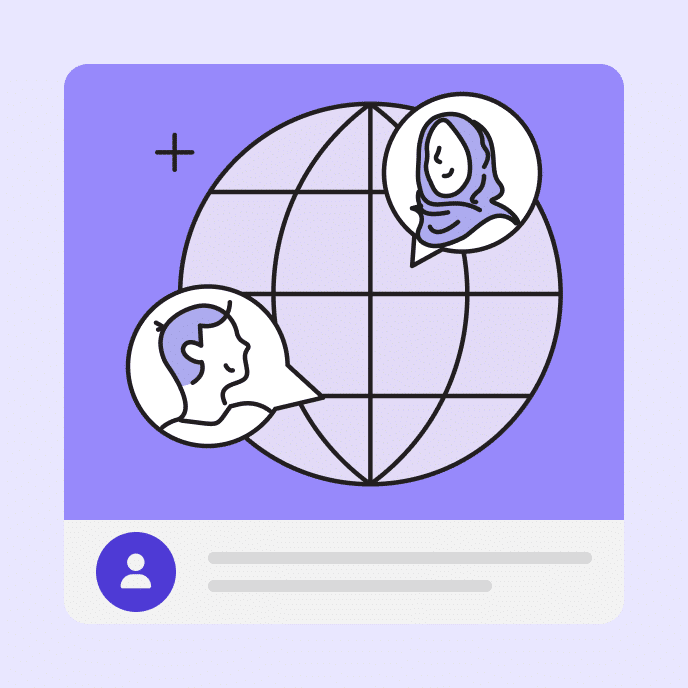Why Your Customer-Facing Teams Need Soft Skills Training
Customer-facing teams need more than product knowledge. Explore how soft skills training enhances interactions, improves customer loyalty, and drives business growth.

The power of soft skills training
The success of your customer interactions rests in the hands of your frontline teams. Whether they’re answering calls, responding to emails, or chatting with customers in person, their interactions are the first thing people notice about your brand.
While product knowledge and technical skills are important, it’s the soft skills—empathy, communication, and problem-solving—that truly make or break these interactions.
In this post, we’ll dive into why soft skills development is essential for your customer-facing teams and the risks of neglecting them. Let’s get started!
Key Takeaways
- Beyond product knowledge, the ability to communicate effectively, empathize with customers, and solve problems in real time truly sets your team apart in customer interactions.
- Providing accessible, interactive soft skills training via e-learning ensures that your team can continuously improve no matter where they are or how busy their schedules get.
- Neglecting to develop soft skills training can have lasting consequences, including poor verbal communication skills, missed connections, and employee burnout.
Why soft skills matter—and how they benefit customer-facing teams
Today, soft skills are more important than ever—especially for customer-facing teams. While technical expertise or hard skills are vital, the soft skills gap has been growing for decades and impacts the entire workforce. Let’s dive into how soft skills benefit your team.
- Effective communication helps your team speak clearly, actively listen, and adapt their communication style to different customer needs.
- Empathy teaches them to put themselves in the customer’s shoes and create meaningful connections.
- Problem-solving equips your team with the ability to think on their feet and resolve issues quickly and creatively.
- Conflict resolution shows them how to manage difficult situations and turn complaints into opportunities for improvement.
- Time management helps your team juggle multiple tasks without sacrificing customer service quality.

The e-learning advantage for soft skills training
Now that we know which soft skills to focus on, let’s talk about how to reach your learners effectively. Many of the best soft skills training programs today rely on e-learning to supplement or replace their traditional in-person training.
Here are four reasons you should consider e-learning for your soft skills training program
1. Greater accessibility and flexibility
E-learning allows your team to complete training on their own schedule, whether at their desks, working remotely, or on the go. This flexibility ensures that training doesn’t disrupt their daily workflow, making it easy to improve continuously.
2. Ability to create realistic yet low-risk simulations
With e-learning, you can create interactive scenarios that simulate real-world customer interactions. In a safe, low-pressure environment, these simulations allow your team to practice handling challenging situations, like angry customers or tricky product issues. Plus, they get immediate feedback on their performance, which helps reinforce learning.
3. Scalable and cost-effective
Unlike in-person training, e-learning is highly scalable. As your team grows, you can easily add new employees to the program without worrying about many of the additional costs associated with traditional training methods. This makes e-learning a cost-effective solution that grows with your business.
4. Measurable results
E-learning offers built-in ways to track your team’s real-time progress and performance. Whether it’s quiz scores, module completion rates, or skill assessments, you’ll have complex data to show how well your team is mastering those important soft skills. This helps you identify areas where your team excels and where they may need additional support.
The hidden cost of not training for soft skills
The risks and costs of not training your team for soft skills are high. When your customer-facing teams are equipped with the right soft skills, you’re not just improving interactions, but also boosting customer satisfaction scores and creating experiences that keep people coming back for more.
Investing in your customer-facing team is an investment in your bottom line, helping you avoid the following pitfalls.
Poor communication
Communication skills are the foundation of any customer interaction. A team member who doesn’t communicate clearly or listen actively can easily frustrate a customer, even if they try their best. This can lead to miscommunication, unresolved issues, and, ultimately, unhappy customers. When customers are dissatisfied, they don’t hesitate to inform the world—on social media, review sites, and through word of mouth.
Missed opportunities to build strong relationships
Valuable soft skills like emotional intelligence and active listening help your team build stronger, more meaningful customer connections. Without these skills, your customer-facing teams may miss opportunities to build rapport, resolve issues effectively, or make the customer feel valued. Customers who feel like they’re just a transaction are less likely to stick around or refer others.
Increased turnover and burnout
A lack of proper soft skills training impacts customers and employees. Dealing with angry or frustrated customers without the appropriate training can lead to burnout and high employee turnover, which costs money in hiring and training new staff and affects your team’s morale and cohesion.
The bottom line: Why soft skills training pays off
Though hard and soft skills are essential for any business, investing in soft skills training through e-learning improves customer satisfaction and directly impacts your bottom line. Happy customers lead to repeat business, positive reviews, and brand loyalty. Plus, your team will feel more confident and capable, which can boost morale and reduce turnover.
Ready to unlock the full potential of your customer-facing teams? Check out our e-book, Soft Skills That Scale.
You may also like

Translation Validation Tips When You Don’t Have a Professional Validator
Our translation validation tips provide free ways to ensure accurate and relevant translations for when you don’t have access to a professional validator.

